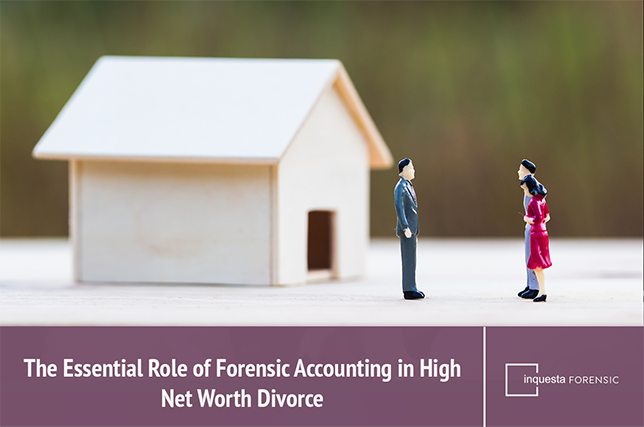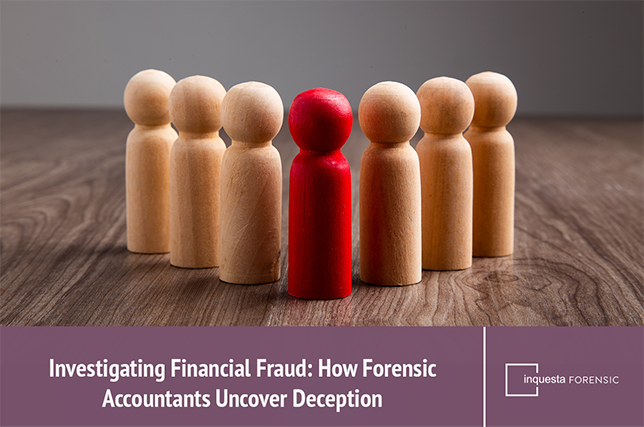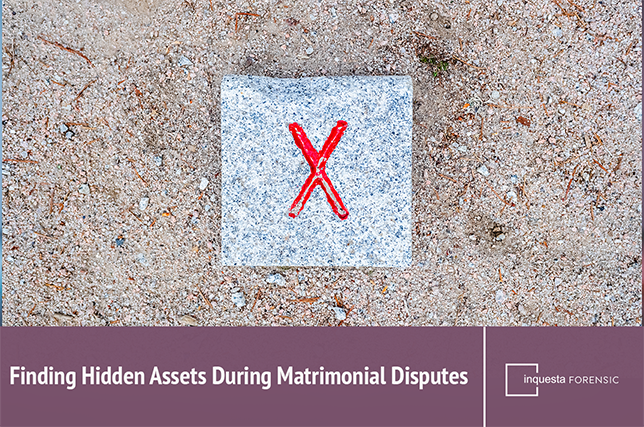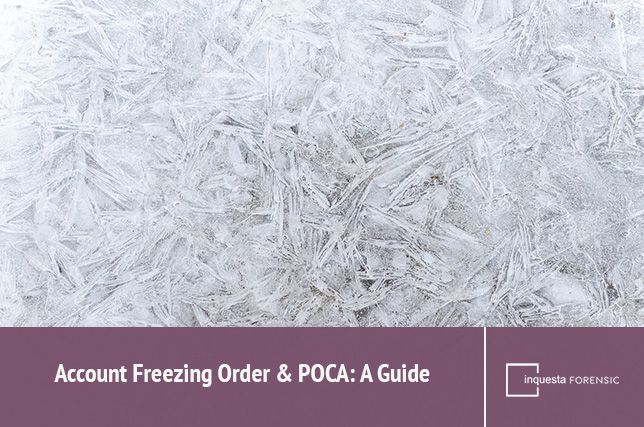Traditionally, tracing assets in disputes meant financial professionals had to follow the money across countless accounts and businesses all over the UK — no easy task. However, with the global economy we have today, financial transactions transcend jurisdictions and borders. As a result, the concealment of hidden assets overseas via offshore bank accounts has become much easier and much more sophisticated.
If you’re in the process of an ongoing divorce, fraud investigations, or are dealing with a corporate dispute, tracing offshore wealth has become a key aspect of modern-day forensic accounting.
Forensic accountants combine sharp investigation skills with financial and legal know-how — ensuring they can play a crucial role and help to trace offshore accounts, uncover hidden assets, and expose structures designed to disguise ownership.
How Offshore Accounts Work
An offshore account is any bank account or investment held in a jurisdiction outside of the account holder’s official country of residence. Offshore accounts — while not inherently illegal — are often associated with attempts to conceal assets from authorities or spouses during divorce, hide the proceeds of crime, evade regulatory scrutiny, and protect wealth from creditors.
Offshore accounts do have legitimate uses and are highly useful for internal business operations and protecting assets. However, the prevalence of their use in illicit activity has tarnished them in the public consciousness.
The problem with offshore accounts lies less in the accounts themselves, but more in the secrecy afforded by many offshore jurisdictions — many of which are often referred to as ‘tax havens’ for this exact reason.
Famous examples of ‘tax haven’ nations include:
- Switzerland
- Panama
- The Cayman Islands
The process to trace offshore accounts and assets hidden in these jurisdictions is made significantly more complex as a result of this privacy, making them particularly attractive to anybody looking to shield assets from scrutiny.

Why Do People Use Offshore Bank Accounts to Hide Assets?
The motivations for hiding assets offshore are varied. In civil cases, a spouse/business partner may attempt to understate their wealth to avoid sharing during a contentious divorce or commercial dispute. In corporate fraud investigations, funds may be siphoned into shell companies. In criminal cases, money laundering operations often rely on offshore accounts to help obscure the origins of illicit funds.
The anonymity of offshore accounts, a key reason people use them to hide assets overseas, is attributed to the way ownership is set up. Ownership structures are often layered to obscure the true account holder through:
- Nominee directors or shareholders.
- Shell companies without any real purpose or operations.
- Multi-jurisdictional structures.
The goal of this layered ownership system is simple: to make it as difficult as possible for the person controlling the assets to be traced.
How Forensic Accountants Trace Offshore Accounts & Find Hidden Assets
The process to trace offshore accounts is rarely a straightforward one. Individuals looking to conceal their assets overseas will often attempt to utilise complex legal structures, secure overseas jurisdictions, and digital currencies. However, using a blend of investigative skills, legal tools, and international cooperation, skilled forensic accountants can locate hidden wealth and expose financial wrongdoing.
So, whether you’re dealing with a high-stakes divorce, a corporate dispute, or suspected fraud, uncovering hidden offshore accounts and assets is possible with the right support behind you. Here’s how forensic accountants can trace offshore wealth

1. Comprehensive Document and Data Analysis
Forensic accountants will usually begin by searching for hidden bank accounts and offshore activity via detailed analysis of financial documents. By examining these documents for inconsistencies and anomalies, forensic accountants can highlight possible red flags that may point to offshore activity.
Key documents a forensic accountant may wish to assess include:
- Tax returns
- Bank and credit card statements
- Loan applications
- Company records, invoices, and contracts
- Internal communications
The process of analysing these sources will entail cross-referencing data from one against the rest, and combing for signs of unexplained wealth or any undeclared ties to an offshore jurisdiction.
2. Following the Money Trail
The concept of following the money is another cornerstone of the work of a forensic accountant. While the purpose of offshore accounts is to hide funds, even when money is routed through offshore accounts, shell companies, and cryptocurrency wallets, it has to originate from somewhere and leave some form of trail.
The logic is, in order to get money into one of these systems of obscuring funds in the first place, they must have moved from somewhere — whether it be an associated UK business, a personal account, a shell company, or even another offshore account. The tracing of this flow of funds is a core forensic technique.
Forensic accountants will follow this money trail by:
- Tracking any transfers and payments across borders and jurisdictions.
- Analysing irregularities in a person or company’s cash flow.
- Mapping possible connections between individuals, corporate entities, and accounts across the different jurisdictions.
Ultimately, every transaction leaves some form of fingerprint, as much as those looking to hide their funds might pretend it does not — and an experienced forensic accountant knows where to look.

3. Uncovering Hidden Companies, Trusts, and Offshore Entities
Common methods of concealing assets include offshore trusts, complex international business structures, and the use of nominee directors — individuals listed as company directors in name only, while the real decision-makers stay hidden. These setups often serve as smokescreens, making it essential to trace ownership and financial activity across borders to uncover the truth.
Forensic accountants, when investigating these structures to determine their true purposes and beneficiaries, will assess:
- Who actually benefits.
- The legal structure and purpose of the entity or trust.
- If the setup aligns with declared financial statements.
- Whether the entity can be tied to the individual under scrutiny.
Fortunately, for those looking to successfully trace offshore accounts, like forensic accountants, regulatory framework such as the UK’s Register of People with Significant Control (PSC) and worldwide agreements like the Common Reporting Standard (CRS) and Foreign Account Tax Compliance Act (FATCA), continue to make it harder to hide ownership overseas without scrutiny.
4. Leveraging Legal Tools to Secure Disclosure
In more complex cases, forensic accountants will work closely with legal teams to obtain court orders to attempt to force disclosure, or prevent further concealment of funds. Tools utilised can include:
- Disclosure Orders: Legally requires an individual to reveal the true extent of their assets.
- Freezing Orders: Prevent further movement of assets once identified.
Both of these orders are enforceable in the UK, as well as in cooperative jurisdictions overseas due to ever-increasing international collaboration efforts when it comes to financial transparency.
5. Investigating Public Records and Open-Source Intelligence
Open-source intelligence can be a vital tool to help trace hidden assets not revealed in private disclosures. This can include:
- Land Registry data.
- Companies House filings.
- Online databases.
- Leaked data for high-profile cases.
- News reports.
- Legal filings and insolvency proceedings.
If combined with privately-sourced financial data, such open-source intelligence creates a more clear picture of a person or business’s finances — potentially including any assets that may not have yet been identified or declared.
6. Don’t Overlook Cryptocurrency and Digital Assets
Due to the anonymous nature of transactions made on the blockchain, it can be difficult to accurately trace transactions. This has made cryptocurrencies a popular digital alternative to/equivalent of offshore bank accounts, often used to obscure asset ownership.
However, using blockchain analysis techniques, as well as digital tracing tools, forensic accountants can uncover cryptocurrency wallets and accounts, detect unusual digital asset transactions, and begin to create ties between wallets and individuals/businesses.
An additional complication stems from the fact that digital assets can be held in offshore crypto exchanges or stored in physical hardware wallets. But with the right level of expertise, even these are not beyond discovery.
Why You Need a Forensic Accountant
If you’re a solicitor attempting to handle a complex divorce case, a company owner dealing with a contentious shareholder dispute, or an individual concerned about concealed assets, a forensic accountant can play a crucial role in helping to bring clarity to your situation — while protecting your financial interests in the short and long-term.
A skilled forensic accountant will be able to:
- Assess whether offshore or hidden wealth may be present.
- Trace offshore accounts and find concealed financial structures.
- Work closely with legal teams in order to obtain disclosure or freezing orders.
- Deliver highly detailed, court-ready reports and testimony (if acting as an expert witness).
- Collaborate with partners overseas in order to aid asset recovery.
Turn Suspicion Into Certainty
Do you suspect hidden assets might be affecting your divorce, business dispute, or legal case?
At Inquesta Forensic, our team possesses extensive experience tracing hard-to-uncover assets and revealing possible signs of financial deception. We specialise in supporting the process to expose hidden assets, trace offshore accounts, and reveal complex financial deception.
Get in touch with our expert team today to find out more about how we can help you discover the truth — wherever it may have been hidden.
- Your Partner’s Been Convicted: Can They Take Your House? What Section 10a POCA Means For You
- The Essential Role of Forensic Accounting in High Net Worth Divorce
- How to Value a Startup Business: A Guide for UK Entrepreneurs
- Pig Butchering Scams: Guide to Crypto Romance Fraud
- Shareholders’ Disputes: How Business Valuation Helps with Shareholder Dispute Resolution










